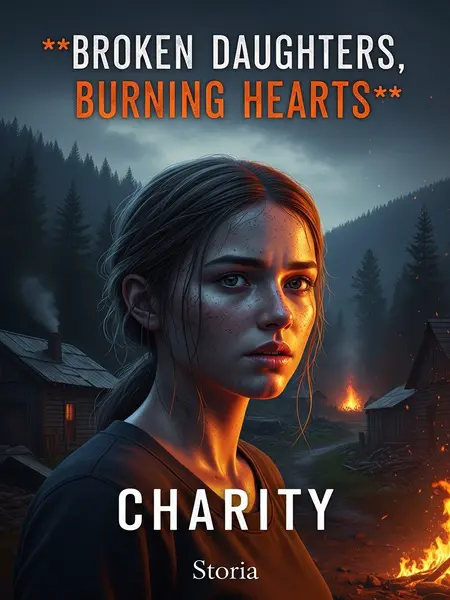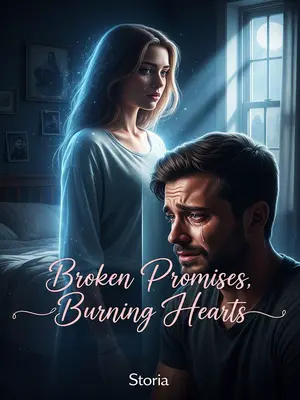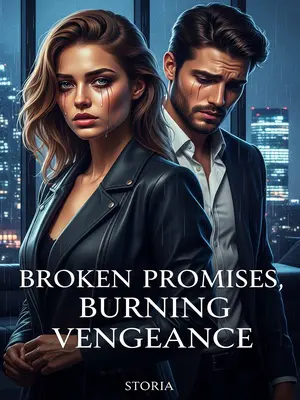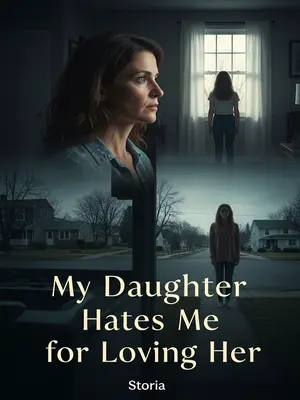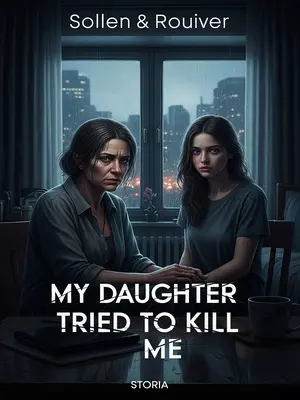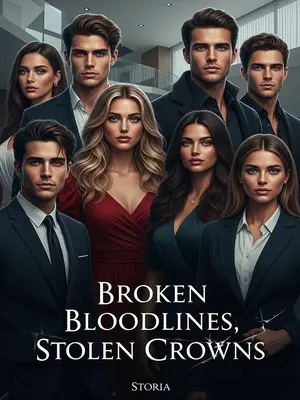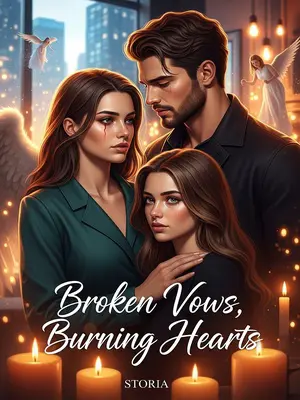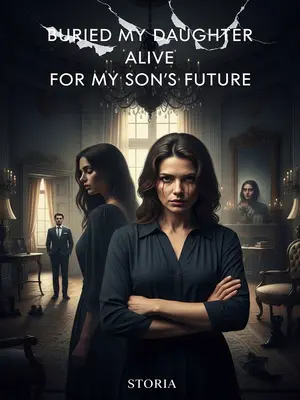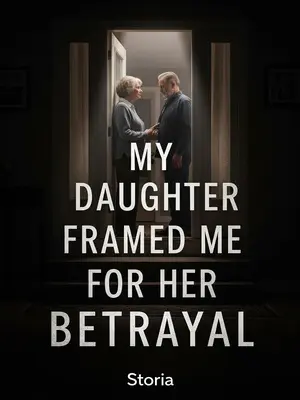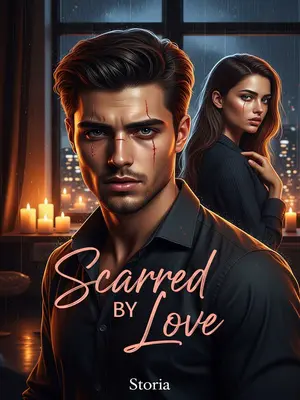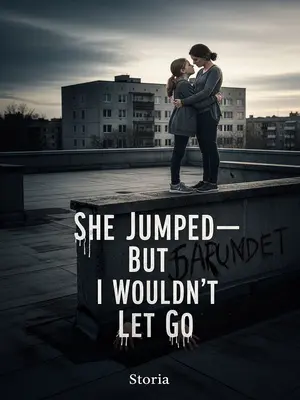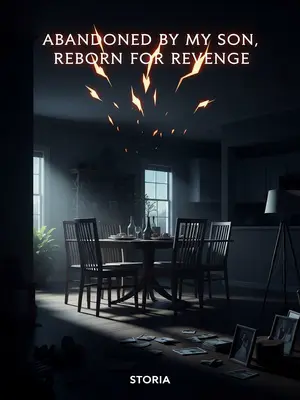The Cage: Lessons in Survival
As Edna’s son’s leg healed, I still couldn’t find a way out. Any chance I thought I had disappeared before it even began. It was like the world was closing in.
So I tried brute force, just like Quinn. I was desperate, reckless, out of options.
And the result was the same. Pain—nothing but pain.
The night I was dragged back, Edna’s son couldn’t wait to get his hands on me. My wounds screamed, and the pain made me yell so loud the whole town heard. Everyone knew what he’d done.
He was satisfied after that, so at least I wasn’t stripped and thrown on the bed for running. I guess that counted as mercy, in a twisted way.
But the wounds kept reopening, blood soaking the sheets. I felt like I was leaking out, piece by piece, every day.
I begged for medicine, and he tossed me a packet of livestock ointment. "When our cow bleeds, we use this. You’re not more valuable than a cow." The words stung. I bit my lip, swallowing the hurt.
Before I could say anything, Edna barged in, snatched the medicine away, and snapped, "Just tough it out, you won’t die." Her hands were rough, her voice even rougher.
I turned my back on them, tears soaking into the sheets, staining the dried blood. I clenched my fists, anger and pain burning inside me, trapped with nowhere to go.
Besides being forced to sleep with Edna’s son, I had to cook, do laundry, clean the shed every day. My hands cracked and bled, my mind numb. I felt like I was disappearing.
When I cooked, Edna would chop vegetables, then hide the knife. The sickle and hoe were locked away. Every tool could be a weapon, every gesture a warning. I noticed everything. So did they.
They were scared of me—maybe as much as I was scared of them. I could see it in the way they watched me.
I’d done chores my whole life, so with just three of us, it was easier than before. My hands moved on autopilot, even when my mind was somewhere else. I felt empty, like a machine.
Other than that one escape and refusing him during my period, I wasn’t beaten for anything else. I learned quick—if I wanted to survive, I had to play along. No mistakes.
But Quinn—she wasn’t as "lucky." Her story was a warning, one they made sure I heard.
I heard she couldn’t even mix pig feed, so they locked her in the pigsty. To get a baby fast, her buyer’s family had two brothers take turns with her. There was no limit to their cruelty.
I heard her screaming during the day, high and broken. The sound hung in the air, impossible to block out.
Edna told me about her all the time, face blank. Every story was a threat, a lesson. I listened, nodded, pretended to be obedient.
"Mom, don’t worry, I won’t be like that." I’d say it sweetly, eyes down. It was all an act. I’d given up on the idea of purity a long time ago. It didn’t matter anymore. Staying alive was all that counted.
I called Edna’s son "husband," called Edna "mom." When outsiders praised them for getting a good wife, I smiled and nodded, even as their words stung like salt in a wound.
But they still wouldn’t let me out—scared I’d run, or that some other man would want to buy my kid. Freedom was always just a step away, always out of reach.
I learned to use my ovulation days as cover—picking manure, cleaning the shed, covering myself in filth so Edna’s son wouldn’t want me. I got clever, desperate to avoid him.
He wasn’t in any hurry. There was always more time. Days blurred together, each one stretching on forever.
If I couldn’t get out of it, I’d wait until he fell asleep, then pee as much as I could, even sitting on the chamber pot until morning. Shame became a weapon. It worked.
So after more than half a year, I still wasn’t pregnant. My body was my last shield, my last bit of control.
The townsfolk started calling him "all thunder, no rain." He got mad, dragged me onto the bed in broad daylight. The humiliation was public, the pain mine alone.
When I realized I couldn’t avoid it, I made up a new plan. Survival meant thinking on my feet, always.
"Honey, don’t listen to them. There’s a saying back home: after parents die, their souls guard the door for three years, keeping evil spirits out." I stroked his chest, voice soft and sweet, like I cared. "All the deaths in town? That’s just evil spirits. Your dad must be protecting us."
Pillow talk worked best, and these people were superstitious. In two nights, he bought it completely. He was easy to fool.
He even fought with other men, claiming their babies were evil spirits reborn. The rumors spread, fast and ugly.
It’s easy to trick people who don’t know any better. Their ignorance kept me safe, at least for a while.
This town wanted sons, always sons. Their own girls were married off at sixteen or seventeen to have babies for strangers. The cycle never stopped.
The pain—mental and physical—killed most women young. More and more bachelors. The numbers told a story, but no one wanted to hear it.
And yet, hardly anyone left, not even to work in the city. The world outside was just a rumor, not something real.
The place twisted people. Crime wasn’t even a word to them. Women and kids were tools—if they broke, toss them out. No one cared. Kindness was a language no one spoke.
The worst part? The old women who survived turned around and did the same to their daughters-in-law, sometimes worse. Hatred built up, hearts turning black. I saw it in Edna’s eyes.
That "life-buying" money from Edna’s husband always made me anxious. It felt like a curse hanging over me, a storm waiting to break.
At first, I thought it meant more beatings. But later I realized—if I died, the money was wasted, and his father died for nothing. My survival was their investment. I mattered only as long as I was alive.
So as long as I behaved, Edna and her son didn’t make things too hard. Playing along got me a little breathing room.
Eventually, Edna’s son loosened up. Sometimes he brought me new clothes from town—small things, but they felt like tokens of control. Gifts with strings attached.
I still couldn’t leave or use a phone, but at least Edna stopped shadowing me everywhere. I got a little space, an inch at a time.
During this time, I found out the town had a spot for sending and receiving packages. That felt like a real chance, a tiny crack in the wall.
Maybe I could use it to find out where I was. I watched and waited, memorizing everything I could.
For over a year, I didn’t even know what county I was in. The world beyond the hills might as well have been Mars.
Any time I tried to get close to the package spot, someone would start talking to me, and at night Edna’s son would warn me not to wander near the town entrance. Every step was watched, every move tracked.
So I set my sights on the town manager’s daughter. She was my best hope, my one shot at contact.
She got the most packages in town, one or two a month. I watched her, learned her habits, waited for my chance.
But here, kids were warned not to talk to outsiders like me. I hardly got a word in. The isolation was total.
One day, she walked by my house. "Emily, be careful, the road’s slick." It had rained the night before. I called out, keeping my voice gentle, nonthreatening.
She jumped, startled, and ran off. I felt a pang of guilt, but I kept trying. I couldn’t give up.
After that, I staged a few more "accidental" run-ins, but she barely answered. Trust was slow to build, and I was running out of time.
I noticed Emily liked dresses, but her sash was always a mess, her hair tangled. Maybe because her mom died young. I remembered being that age—wanting to look pretty, not knowing how, wishing someone would help.
One day, I wore a top with a neat bow at the chest, just to catch her eye. I used to be good with my hands—back on the factory line, my coworkers said I was the fastest. If I hadn’t chased the acting dream, maybe I’d still be there. Funny, I thought I was unlucky then. I had no idea.
When Emily passed by, I tried again. "Emily, let me tie a bow for you." I kept my voice light, hoping she’d say yes.
She glanced at my chest, hesitated, then stepped over. Teenage girls want to look nice, even here. I smiled, careful not to scare her off.
My eyes flicked to the address on her package, burning it into my memory. I repeated it over and over in my head, afraid I’d forget.
Emily hadn’t gotten far when Edna’s son came home, eyeing me. "What’d you say to her?" His suspicion was sharp, and I felt my pulse jump.
"Nothing, just tied her a bow." I pointed to my chest, grabbed his arm, trying to change the subject. "Honey, this top you bought is so cute. When we have a daughter, I’ll dress her up just like that."
He grinned, scratching his head, pleased with himself. "Let’s have a boy first." I rolled my eyes behind his back. Good luck, I thought.
After that, Emily let me braid her hair sometimes when she passed. Edna and her son didn’t care. Getting close to the manager’s family was a win in their eyes, so I took every chance.
The manager spoiled his daughter compared to most. They had a computer, shopped on Amazon, she’d even been to town with her dad. But she still couldn’t go to school. In two years, she’d marry the only college-educated guy around—the vet’s son. Some future.
Days crawled by. Emily only got packages, never sent any. I racked my brain for a new plan. Then the bad news about Quinn hit.
She died, leaving behind a baby boy. The news landed like a fist to my chest. I couldn’t breathe.
